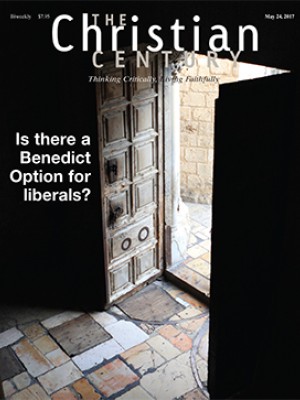More education doesn’t mean less religious commitment among Christians, Pew says
It’s a popular belief: the more educated a person is, the less religious he or she likely will be. And it’s mostly right, but with exceptions, according to a recently released analysis of Pew Research Center surveys.
“I think the answer is, ‘Well, it’s complicated,’” said Gregory Smith. “On the one hand, if you just look at the public as a whole, there’s no question people with the highest levels of educational attainment tend to be less religious than those with lower levels of educational attainment.”
Fewer than half of college graduates, or 46 percent, say religion is “very important” in their lives, compared with 53 percent of those who have completed some college and 58 percent of those with no more than a high school education, according to Pew. College grads also are less likely to say they believe in God “with absolute certainty” and pray daily.
Read our latest issue or browse back issues.
The big “however,” Smith said, is that Christians—the majority (71 percent) of American adults—don’t seem to fit the pattern at all.
Christians with higher levels of education (70 percent, combining all measures) appear to be just as religious as those with less schooling (73 percent of those with some college and 71 percent with some high school), according to the analysis. They are almost equally likely at all education levels to pray daily, attend worship services weekly, and say they believe in God with absolute certainty.
In fact, highly educated Christians are most likely (52 percent) to say they are weekly churchgoers, compared with 45 percent of those with some college and 46 percent with at least some high school, according to Pew.
Fully three-quarters of college graduates still are affiliated with some religion, not much different from those with some college (76 percent) or high school (78 percent), for example, according to Pew. College graduates also report attending weekly religious services at similar rates as Americans with less education.
But more college graduates identify as atheist or agnostic: 11 percent, compared with 8 percent with some college and 4 percent of those with no more than a high school education, according to the analysis. Those aren’t large numbers, but Smith pointed out that college graduates are still almost three times as likely to identify as atheist or agnostic than those who have no more than a high school education.
While none of the numbers are huge, they are statistically significant, he said. Most of the data analyzed comes from Pew’s 2014 U.S. Religious Landscape Survey of more than 35,000 Americans reached on randomly dialed cell phones and landlines. The margin of error for results based on the full sample in that survey is plus or minus 0.6 percentage points. —Religion News Service





